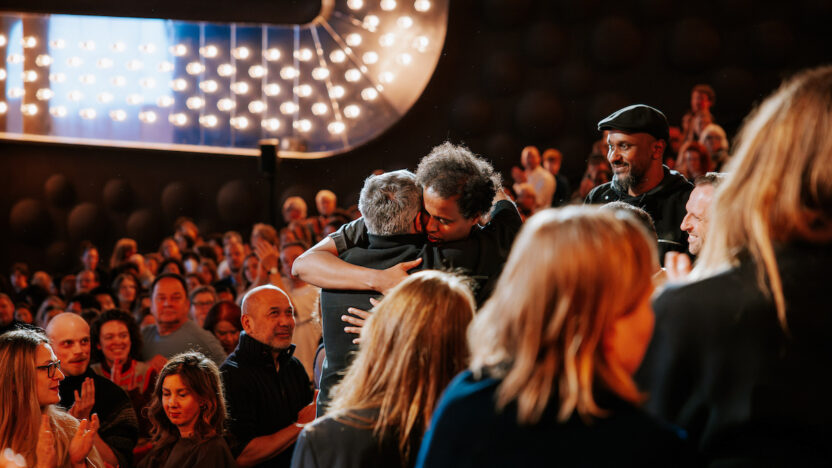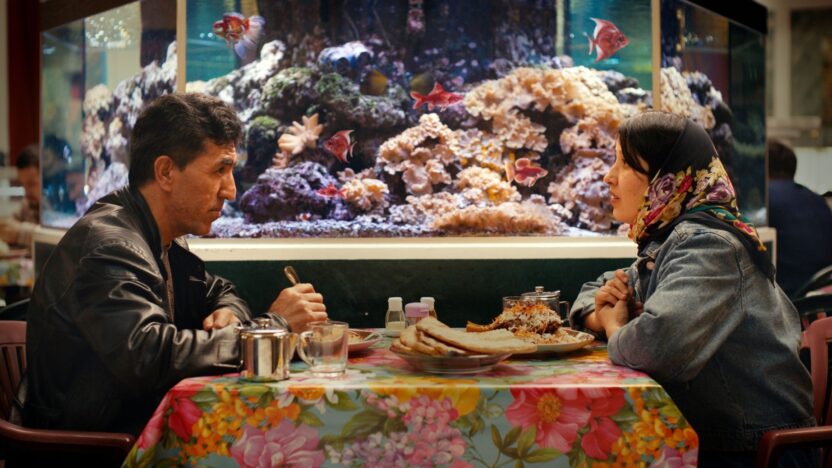Remembering Gertjan Zuilhof
Gertjan Zuilhof radiated the fury and humility of those who sense they might be counted among the chosen – aware that they have something truly unique to give. And that, Zuilhof certainly had, with IFFR among the main beneficiaries of his genius and generosity of spirit.

For a quarter of a century, Zuilhof was at the heart of IFFR’s programming team. He helped shape the festival’s overall artistic vision while leaving his personal imprint through the countries and regions he was most deeply engaged with. It is fair to say that his passion for the cinemas of Southeast Asia helped pave the way for the global success of Lav Diaz and Khavn De La Cruz, sustained the burgeoning interest in Malaysia’s independent cinema, and shone a light on Myanmar’s little-known but vital film and video art scene.
Beyond the programmer and team player, there was also Zuilhof the curator and supreme soloist, whose special projects remain among the most spectacular and best remembered in IFFR’s history. In good Provo spirit – already present in his writings for De Groene Amsterdammer – he saw cinema as a cruel machine, probing how films engage with people and acts considered objectionable, if not outright horrific. In a world where Tarantino-esque violence had never looked sexier, he explored the moral and aesthetic consequences of this trend. Similarly bold, but perhaps less a direct provocation to the audience’s stomach and moral compass, was his exploration of all the contemporary cinematic meanings that could be found in Erasmus of Rotterdam’s In Praise of Folly.
His arguably grandest undertaking was his deep dive into African cinema – a subject barely looked at anymore in the mid-2000s – when he embarked on a whole series of programmes, often paired with exhibitions based on his travels through the continent. He returned not just with films but with an entire ecosystem of installations, artworks, and visual experiments, many of which might never have traveled had he not insisted: this needs to be seen by the world.

But Zuilhof was never a romantic or a dreamer. Yes, he discovered new filmmakers and artists in every corner of the map, but he also understood the shifting forces of global power. He was keenly aware of the growing influence of the People’s Republic of China in Sub-Saharan Africa – something he reflected on with both fascination and unease in Raiding Africa. He resisted easy moral conclusions, knowing all too well how today’s revolutionary ideas could become tomorrow’s empty slogans, how cinematic trends could shift from urgent to laughable in just a few years. What mattered to him was how ideas, images and sounds could shift their meaning depending on context – how a film could enrich a discussion in one setting while shutting it down in another. One had to be careful, and very sure of one’s ethical core. Neither cinema nor life were easy.
Among Zuilhof’s most visionary propositions was Happy Endings: When Festivals Are Over, conceived at a time when the global festival circuit seemed to have reached a saturation point – if not an early stage of ossification. He asked: how could film culture continue in a spirit of festivity and curiosity beyond the rigid structures of festivals? One of his most memorable answers was a futsal tournament where the real magic happened not on the field, but in the breaks, when people sat together, watching videos on their phones, eating, talking, and sharing. He was an artist of movement, for whom every ending was, above all, a beginning. In the last years of his life, he traveled extensively and found a new calling in drawing, leading to several exhibitions.
Gertjan Zuilhof has left us now, on his own free will, in avoidance of years spent suffering more than living decently. Maybe he looked at this choice and moment in the spirit of the title Alexander Kluge gave his film about Christoph Schlingensief: TOD = (Die längste Zeit meines Lebens) – Death = (The Longest Time of My Life).
We shall honour his legacy, and will feel his indomitable spirit with us wherever IFFR will go. Through remembering Gertjan Zuilhof, we shall always steer on course.
A list with articles
-

IFFR closes its 55th edition celebrating an uptick in new, younger audiences and industry attendees
Published on:-
News
-
Press release
-
-

Shahrbanoo Sadat’s No Good Men opens Berlinale 2026 among strong HBF and CineMart lineup
Published on:-
CineMart
-
Hubert Bals Fund
-
IFFR Pro
-
-

